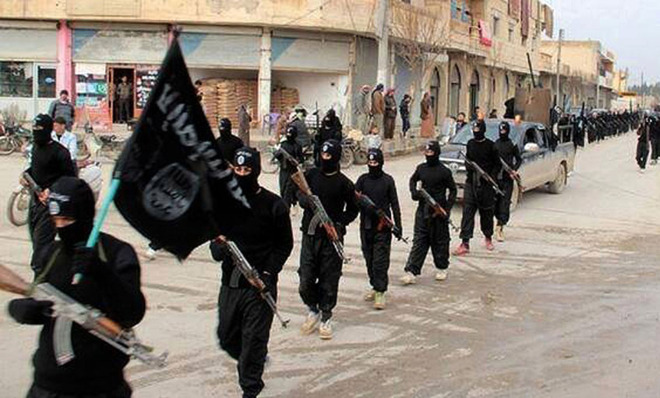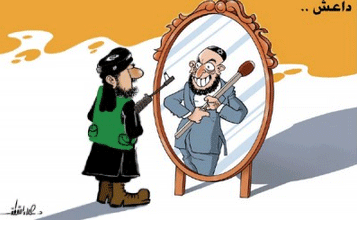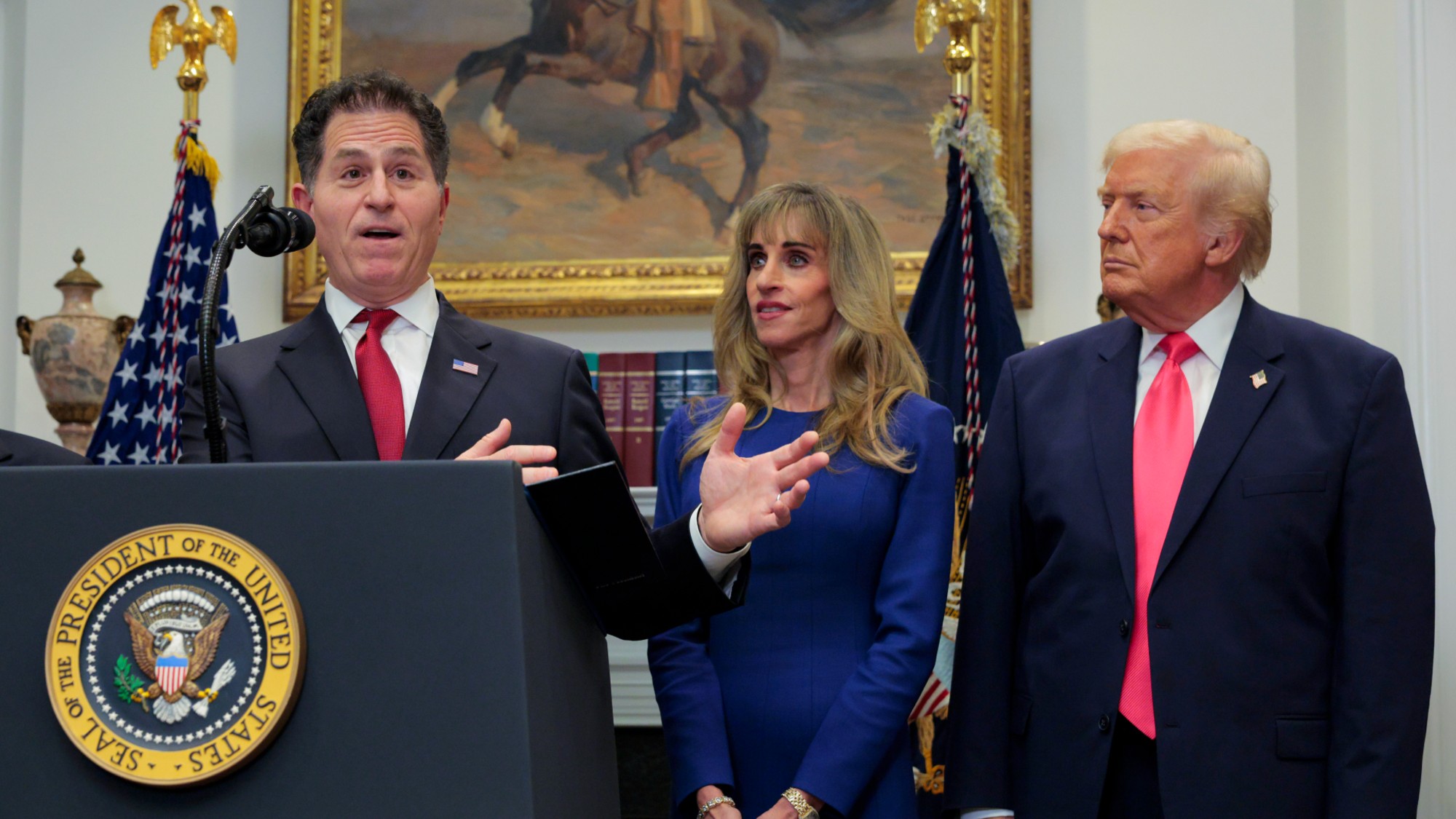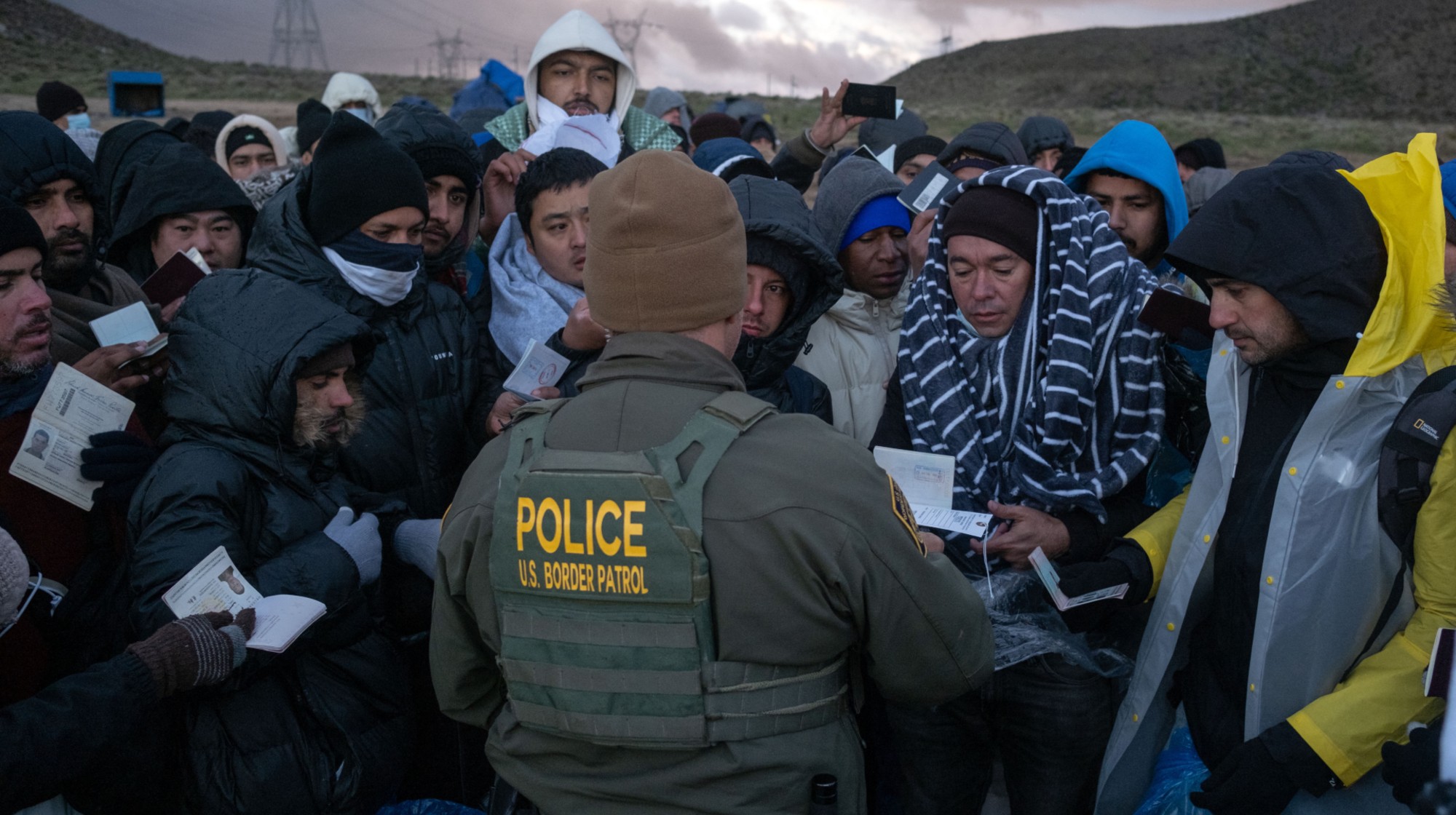America created the Islamic State of Iraq and Syria? Meet the ISIS 'truthers'
Did Hillary Clinton start the Islamist insurgency in Iraq? Did she brag about it, too? Read on to find out.


In June, the Islamic State of Iraq and Syria militia swarmed across Iraq, conquering huge swaths of territory and even threatening to topple the government in Baghdad. ISIS is now in charge of a self-declared caliphate and is fantastically flush with cash, thanks to oil revenue from its conquered territories, ransom for hostages, the gold reserves it lifted from the central bank in the northern city of Mosul, and other revenue streams.
ISIS had been planning its conquest since at least 2006, when al Qaeda in Iraq leader Abu Musab al-Zarqawi was killed by U.S. airstrikes and the group rebranded. Or at least that's the official story. Not everyone is convinced. But the conspiracy theories, especially one that the U.S. government created ISIS, aren't just a phenomenon discussed at FreeRepublic forums and anti–New World Order meet-ups. The story gained such widespread currency that the U.S. Embassy in Lebanon earlier this month felt compelled to make this declaration on Facebook:
The Week
Escape your echo chamber. Get the facts behind the news, plus analysis from multiple perspectives.

Sign up for The Week's Free Newsletters
From our morning news briefing to a weekly Good News Newsletter, get the best of The Week delivered directly to your inbox.
From our morning news briefing to a weekly Good News Newsletter, get the best of The Week delivered directly to your inbox.
The prompt for that disclaimer was that Lebanon's foreign minister, Gebran Bassil, had just demanded an explanation from U.S. Ambassador David Hale as to why America is supporting ISIS. Bassil then bragged about it on Twitter.
This isn't the only branch of ISIS trutherism, though. Here's a guide to some of the bigger conspiracy theories — both absurd and almost plausible.
Blame Hillary
Perhaps the most prevalent conspiracy theory is based on fabricated sections of Hillary Clinton's memoir, Hard Choices — called Password 360 in some Arab accounts. In these passages, spread over Facebook, Clinton purportedly recounts how, as secretary of state, she spearheaded a U.S. plan to create ISIS to wipe out the despotic rulers of the Middle East and replace them with more malleable Islamist leaders.
A free daily email with the biggest news stories of the day – and the best features from TheWeek.com
An Egyptian blogger who goes by Zenobia says the rumor started with supporters of Egypt's military and military-backed president, Abdel Fattah el-Sissi. Now it has spread all over the Middle East. "Most people here believe the U.S. and Saudi are one, and when it comes strictly down to oil money, the ultimate benefactor from the whole [ISIS] debacle is Saudi/the U.S.," Amer Murad of Beirut tells the BBC. "As history has taught us, it is usually the benefactors who are the instigators."
Robert Mackey has more detail on this theory at The New York Times.
Iframe Code
The U.S. directly organized and trained ISIS
Another theory holds that the CIA, British intelligence, and Israel's Mossad created ISIS in a joint operation code-named Hornet's Nest. This information purportedly came from NSA leaker Edward Snowden. PolitiFact traced the Snowden-ISIS rumor to a July 6 post on an Arabic-language blog with a German domain name. From there the conspiracy theory was reported as fact by Iran's Fars and Islamic Republic News Agency (IRNA), Bahrain's Gulf Daily News, various other Middle Eastern newspapers, and Alex Jones' U.S. site InfoWars.
IRNA said it had learned of the CIA-Mossad plot from Snowden himself. Time's Aryn Baker, writing from Tehran, says the story helps Iran's leaders "project power and preserve stability." But she's puzzled, too:
Why IRNA had to concoct something so obviously fictional as a fake Snowden interview to bolster the narrative is still unclear. Even [Hossein] Shariatmadari, editor of [government-owned] Kayhan, is mystified. "I thought this interview was strange too, because all this happened after Snowden had access to those documents," he tells Time. Nonetheless, he ran the story on his front page as well. [Time]
PolitiFact rates the story "Pants on Fire," noting that Glenn Greenwald, WikiLeaks, and other "sources with access to Snowden's documents have directly refuted the hoax."
Fake Snowden documents aren't the only game in town. Several sites have posted the interview and transcript of an interview Al-Maydeen TV conducted with Sheikh Nabeel Naiem Abul Fattah, an Egyptian who says that he helped set up al Qaeda in the late 1980s. Naiem said that ISIS leader Abu Bakr al-Baghdadi is "basically a U.S. agent," claiming that he established ISIS training camps in Jordan that "were supervised by the Marines."
Iframe Code
The U.S. indirectly spawned and armed ISIS
This is the most plausible of the theories, and in fact it contains elements of truth. Tom Engelhardt at TomDispatch (and its parent site The Nation), for example, calls ISIS "George W. Bush and Dick Cheney's gift to the world (with a helping hand from the Saudis and other financiers of extremism in the Persian Gulf)," explaining that if the U.S. hadn't invaded Iraq, "ISIS would have been an unlikely possibility."
Pretty straightforward so far. TomDispatch then posted an excerpt of Irish journalist Patrick Cockburn's new book, The Jihadis Return: ISIS and the New Sunni Uprising. Cockburn says that by fighting ISIS in Iraq and supporting its objectives in Syria (toppling President Bashar al-Assad), the U.S. "has created a situation in which ISIS can survive and may well flourish." But Cockburn also accuses the U.S. of arming ISIS — not just because U.S. weapons and vehicles given to Iraq's army fell into ISIS's hands, but because it armed other militias in Syria, some of which were known to be allied with jihadists.
Cockburn also says the U.S. enabled the rise of al Qaeda, ISIS, and other Islamist groups because it didn't take on allies Saudi Arabia and Pakistan, "the two countries that fostered jihadism as a creed and a movement."
Still, while the facts may be correct, the chain of causation in this theory seems a little weak.
Iframe Code
Israel and allied 'Zionists' created ISIS to destroy Muslims
Back into the absurd theories, "several prominent public figures in parts of the Muslim World, including religious figures, elected officials, and scholars, are promoting a conspiracy suggesting [ISIS] was created by the Jews and Zionists to tear Islam apart," says the Anti-Defamation League.
The ADF lists several examples from Pakistan, Egypt, Iraq, Iran, and even the U.S., where a site called Veterans Today apparently started a rumor that ISIS leader Baghdadi is a Mossad agent.
Yuram Abdullah Weiler at the English-language Tehran Times wrapped up all the Israel rumors into a neat and tidy conspiracy theory sandwich, writing on Aug. 22 that Baghdadi, "according to sources traceable to Edward Snowden as uncovered by Iran's intelligence services, is really Simon Elliot, a Jewish agent for the Zionist intelligence agency Mossad. The plan was to invade countries that constitute a threat to the Israeli entity in order to establish the biblical 'Greater Israel.'"

(Published in Al-Iraq Agency News, via ADL)
There are undoubtedly other conspiracy theories pinging around about ISIS, where it came from, and how it got so powerful. And these theories aren't harmless. If Arab leaders or their citizens believe (or pretend to believe) that Hillary Clinton, the U.S., Israel, and other implausible actors are the secret driving force behind ISIS, they will be less inclined to work with the U.S. to contain and conquer ISIS — which, in a self-defeating bit of irony, is more of a threat to Middle Eastern countries right now than to the U.S.
Peter has worked as a news and culture writer and editor at The Week since the site's launch in 2008. He covers politics, world affairs, religion and cultural currents. His journalism career began as a copy editor at a financial newswire and has included editorial positions at The New York Times Magazine, Facts on File, and Oregon State University.
-
 A postapocalyptic trip to Sin City, a peek inside Taylor Swift’s “Eras” tour, and an explicit hockey romance in December TV
A postapocalyptic trip to Sin City, a peek inside Taylor Swift’s “Eras” tour, and an explicit hockey romance in December TVthe week recommends This month’s new television releases include ‘Fallout,’ ‘Taylor Swift: The End Of An Era’ and ‘Heated Rivalry’
-
 ‘These accounts clearly are designed as a capitalist alternative’
‘These accounts clearly are designed as a capitalist alternative’Instant Opinion Opinion, comment and editorials of the day
-
 Trump tightens restrictions for work visas
Trump tightens restrictions for work visasSpeed Read The length of work permits for asylum seekers and refugees has been shortened from five years to 18 months
